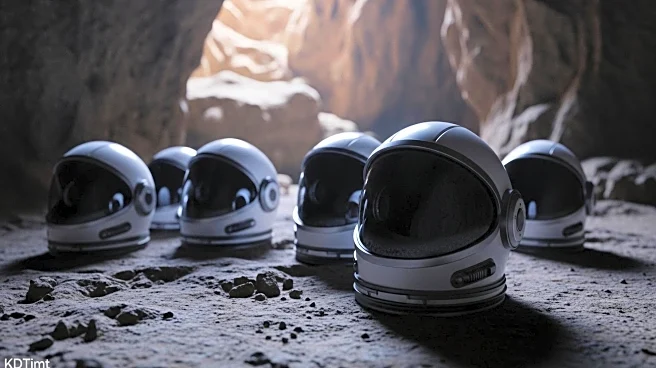What is the story about?
What's Happening?
Marco Sieber, along with an international team of astronauts, participated in a unique training program organized by the European Space Agency (ESA). The team spent four days living and working in a cave located in the Italian Apennines. This exercise was designed to simulate the cramped and isolated conditions astronauts experience during spaceflight. The training involved navigating challenging terrain, including vertical drops of up to 20 meters, and conducting experiments to monitor the cave environment. This program aims to prepare astronauts for the physical and psychological demands of space missions by replicating similar conditions on Earth.
Why It's Important?
The training program is significant as it provides astronauts with a realistic environment to develop skills necessary for space missions. By simulating the isolation and confinement of space, astronauts can better prepare for the psychological challenges they may face. This type of training is crucial for ensuring the safety and success of future space missions, as it helps astronauts adapt to the unique conditions of space travel. The program also highlights the importance of international collaboration in advancing space exploration, as it brings together astronauts from different countries to work and learn together.
What's Next?
Following the cave training, astronauts will likely continue with other preparatory activities, including simulations and physical training, to further enhance their readiness for space missions. The insights gained from this program may also inform future training protocols and mission planning. As space agencies continue to plan for more complex missions, such as those to the Moon and Mars, the need for comprehensive training programs that address both technical and psychological aspects will become increasingly important.
Beyond the Headlines
This training exercise underscores the broader trend of using Earth-based environments to simulate space conditions, which can be more cost-effective and accessible than space-based training. It also raises questions about the psychological resilience required for long-duration space missions and the potential need for new support systems to assist astronauts in coping with isolation and confinement. As space exploration efforts expand, understanding and addressing these human factors will be critical to mission success.
















